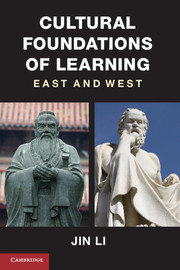Book contents
- Frontmatter
- Contents
- Preface
- 1 Faust and the Birth of a Research Agenda
- 2 Learning to Master the Universe and to Transform Self
- 3 Time Past and Time Present
- 4 Mind-Oriented and Virtue-Oriented Learning Processes
- 5 Curiosity Begets Inquiry and Heart Begets Dedication
- 6 Nerd’s Hell and Nerd’s Haven
- 7 Socratic and Confucian Tutors at Home
- 8 The Devil’s Advocate and the Reluctant Speaker
- 9 Implications for the Changing Landscape of Learning
- Bibliography
- Index
- References
Bibliography
Published online by Cambridge University Press: 05 June 2012
- Frontmatter
- Contents
- Preface
- 1 Faust and the Birth of a Research Agenda
- 2 Learning to Master the Universe and to Transform Self
- 3 Time Past and Time Present
- 4 Mind-Oriented and Virtue-Oriented Learning Processes
- 5 Curiosity Begets Inquiry and Heart Begets Dedication
- 6 Nerd’s Hell and Nerd’s Haven
- 7 Socratic and Confucian Tutors at Home
- 8 The Devil’s Advocate and the Reluctant Speaker
- 9 Implications for the Changing Landscape of Learning
- Bibliography
- Index
- References
- Type
- Chapter
- Information
- Cultural Foundations of LearningEast and West, pp. 353 - 380Publisher: Cambridge University PressPrint publication year: 2012



